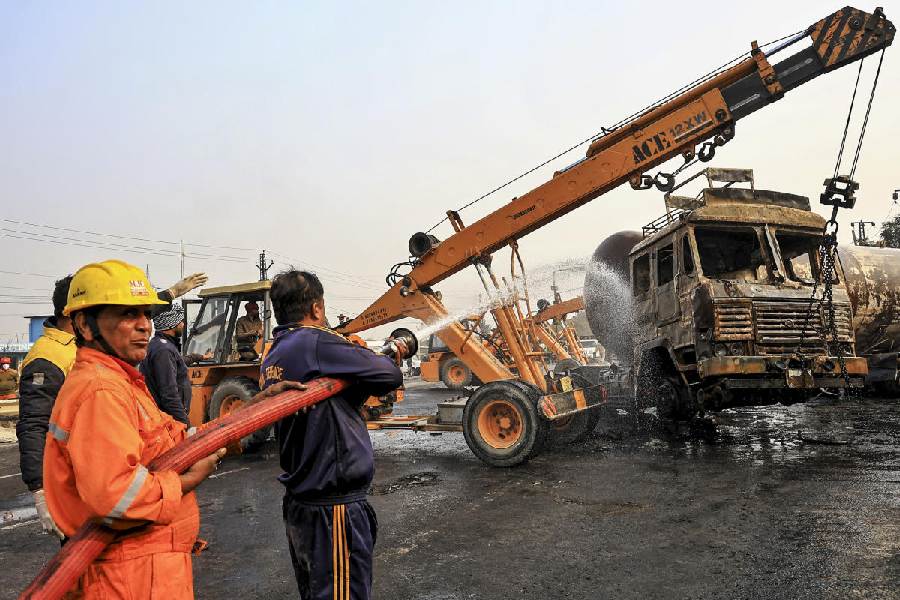A parliamentary panel has extolled an employment programme that Prime Minister Narendra Modi had six years ago termed a “living monument to (the Congress’s) failures” but which his government had to fall back on last year after the lockdown left millions jobless.
The standing committee on labour has praised the role of the Mahatma Gandhi National Rural Employment Guarantee Act (MGNREGA) scheme in providing livelihood to unskilled workers, including unemployed migrant labourers who had returned home after the lockdown.
It has also recommended an enlargement of the scope for projects under the scheme, which provides for paid unskilled work for up to 100 days a year to every rural household.
The recommendation comes amid a cut in funds for the scheme compared with the revised allocation for the last financial year.
The panel, headed by Biju Janata Dal member Bhartruhari Mahtab, tabled its report on “social security and welfare measures for inter-state migrant workers” in Parliament on Thursday.
“The committee (members) are of the firm opinion that there is no better scheme than the MGNREGS to provide sustainable livelihood to the unskilled workers, including the inter-state migrant labours,” the report says.
“In fact, by enacting the MGNREGA law in 2005, the Indian Parliament had set in motion a process that provides for a specific and significant welfare provision, constitutive of the very idea of citizenship.”
The NDA government had initially been keen to dilute the scheme and limit its application to 2,500 of the country’s 6,000 blocks. But the proposal did not fructify.
When the pandemic-induced lockdown forced millions of suddenly jobless migrant workers to return home early last year, swelling the ranks of the unemployed in the villages, the job scheme was widely acknowledged to have provided succour to a large segment of them.
In tacit admission of this, the government had revised the 2020-21 financial year’s allocation for the scheme from Rs 61,500 crore to Rs 111,500 crore. However, the budget for 2021-22 allocates only Rs 73,000 crore for the scheme.
The government had told the parliamentary panel that the scheme’s scope encompassed 262 categories of projects related to agriculture and allied sectors.
The gram panchayats decide the projects and engage job card holders who have demanded work.
The committee has suggested expanding the list of permissible projects. It has suggested the rural development ministry — which oversees the scheme — work in collaboration with other ministries, departments and the state governments to enhance the employment opportunities.
The People’s Action for Employment Guarantee, a body of civil society activists and researchers, has demanded the allocation for this financial year be raised to at least Rs 175,000 crore and the permissible days of work from 100 to 150 per family a year.
Rural development minister Narendra Singh Tomar has denied any plan to increase the permissible days of work.
The panel’s report says 10-12.5 crore migrant workers leave their villages and families to work outside. It has sought the creation of a database of migrant workers, echoing a demand voiced by many since the lockdown left these workers in the lurch.











